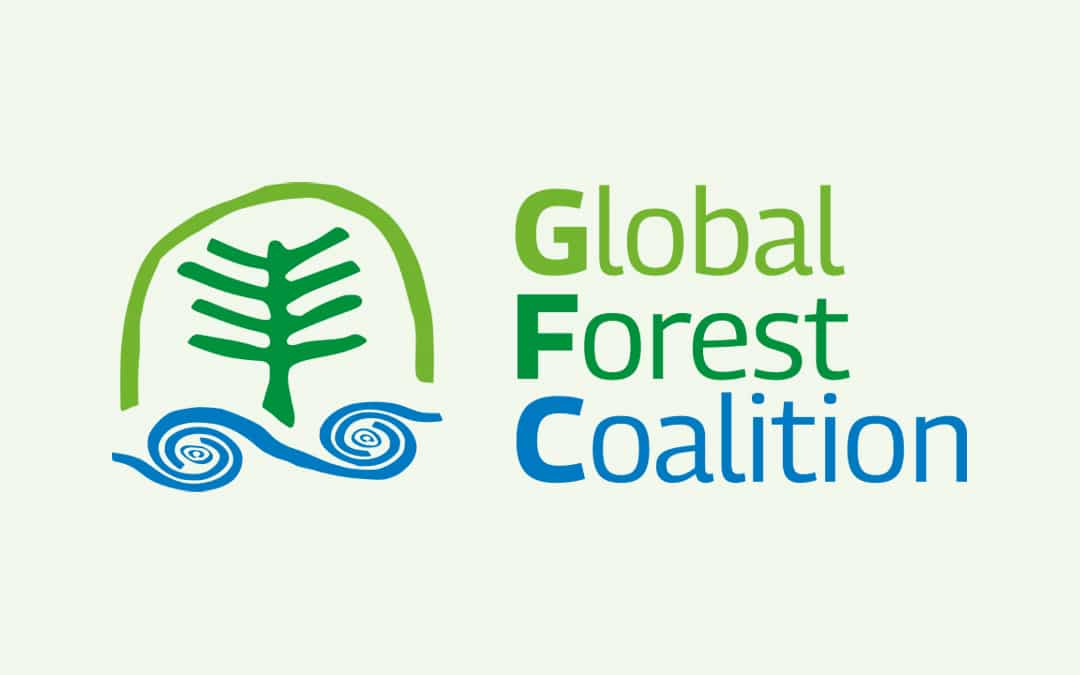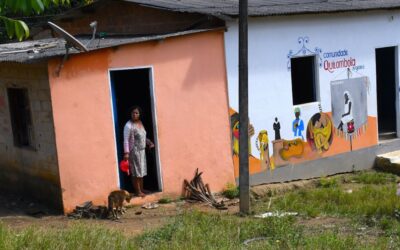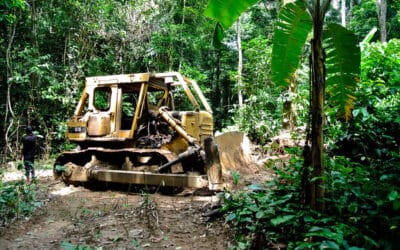By Annabel Kennedy. [This article was originally published on WECF’S website.]
Between 2021-2025, WECF, together with our close strategic partner the Global Forest Coalition (GFC) and international network partners, are engaged as the gender technical partners (GTPs) of the Green Livelihoods Alliance (GLA) ‘Forests for a Just Future’ programme. The GLA seeks to ensure that tropical forests and forest landscapes are sustainably and inclusively governed to mitigate and adapt to climate change, fulfil human rights and safeguard local livelihoods. Our specific role is to support the alliance in pursuing gender transformative change, and ensure that gender, intersectionality and inclusion are mainstreamed at all levels of the programme.
With the GLA operating in eleven tropical forest countries in Africa, Latin America and Asia, plus internationally, we work with our network partners in each country to effectively fulfil our role as gender advisors. As our partners are rooted in their communities, and have the best knowledge and understanding of gender issues in their countries and contexts, they are best placed to guide the GLA implementing partners.
Following the programme mid-term review (MTR), which gave us valuable insights into progress to date and areas with room for further improvement, we felt it was long overdue to gather together to strengthen our relationships, exchange and learn from each other, and design actions supporting gender-transformative change in the GLA. We decided to arrange an exchange and capacity workshop in Nairobi, Kenya, parallel to the fourth meeting of the Subsidiary Body of Implementation (SBI 4) of the Convention on Biological Diversity (CBD).
Over three weeks, the Parties to the CBD met in Nairobi, Kenya, to discuss scientific, technical and implementation issues. We joined the final week of meetings on implementation, covering topics such as progress review of the Kunming-Montreal Global Biodiversity Framework; resource mobilisation (finance); and capacity development. By joining the negotiations, we and our partners increased our knowledge on the various items of the global biodiversity framework, and gained insights into how each of our countries engages with international biodiversity policy-making.
Informal Dialogue on a new Programme of Work on Art.8(J) and other provisions related to Indigenous Peoples and Local Communities
We also increased our knowledge through side events covering topics such as gender responsiveness in National Biodiversity Strategies and Action Plans (NBSAPs), and civil society concerns about biodiversity offsets and credits. Our participation in the CBD meetings was complemented by engaging closely with other civil society actors, most notably with the CBD Women’s Caucus. The closing statement of the CBD Women’s Caucus can be read here.
Partners’ reflections on participating in the CBD negotiations
“It was a great opportunity to understand the procedures of reviewing the implementation of the biodiversity framework in advance of the next COP… I learned how Parties negotiate to reach consensus on the targets”
“This was a golden opportunity… we got to know our delegates and today we are continuing our contact with them in order to define how we are going to collaborate”
“It was very useful to understand how the negotiation spaces that later have consequences in my country’s public policy work”
Following the CBD, we spent two days (30-31 May) in workshops exclusively with our network partners, with the intention to:
- build a strong sense of community and solidarity
- share our experiences, knowledge and useful tools/methodologies
- learn about each other’s work, identify and address needs
- strengthen our capacities on issues like communication and reporting.
Though much of our workshop was in the format of presentations, we also took care to nourish ourselves with creativity and connection. We started the first day by building a ‘spider web’ of small items which meaningfully symbolised our work, plus we spent time on the second day creating collages to express resistance against multiple forms of oppression and our visions of alternative worlds.
One of the collages representing visions for alternative, just futures
Each of our partners presented their work, with a focus on their experiences of providing gender support and advice to the GLA partners, plus the opportunities and challenges relating to gender and forests/biodiversity in their countries. Our partners all agreed that work on environmental and climate action must be done holistically to address the interconnected needs and challenges faced by frontline communities.
Our colleagues from DR Congo and Colombia shared their experiences working in conflict-affected areas, and how they have adapted their work to respectively support displaced populations, and address increased land insecurity as a result of armed violence. The reality of sexual and gender-based violence, which is present in all societies but often magnified in conflict areas, presents a serious barrier to women’s meaningful social and political participation.
In Bolivia, feminists face strong patriarchal systems alongside ruptures in the social fabric caused by the influence of powerful extractive industries. Building trust amongst civil society actors has been crucial to connecting movements and jointly developing understandings of gender, feminism and colonial systems.
 Kiyomi discussing the situation relating to human rights in Bolivia
Kiyomi discussing the situation relating to human rights in Bolivia
We learned about the Gender Action Learning System (GALS) methodology being implemented in Uganda, which is a participatory and community-led method supporting people to develop visions for their own futures. Engaging with men and boys to be male agents of change is another complementary approach.
Our Liberian partner shared the challenges and successes of working with the GLA partners to develop gender policies at organisational level, such as parental leave, prevention of sexual abuse, exploitation and harrassment, and naming of gender focal persons. The last is a useful strategy to make sure that gender is mainstreamed at both organisational and programming level.
In Ghana, the trust built over time has resulted in partners regularly contacting our partner to conduct gender training sessions and workshops about diverse topics, including intersectionality and how to develop gender-responsive indicators. In the remaining phase of programme implementation, they plan to conduct a female leadership training for community forest monitors.
 Alain explaining his work in DR Congo in the context of displacement and severe armed violence
Alain explaining his work in DR Congo in the context of displacement and severe armed violence
Finally, the WECF and GFC team gave various presentations seeking to respond to needs identified by our partners, such as strategic and inclusive communications; supporting partners to develop Organisational Gender Action Plans (OGAPs); strengthening capacity to use the Outcome Harvesting monitoring method; exchanging on concepts like intersectionality, gender transformative change, and gender justice.
Partners’ reflections on the exchange and capacity strengthening workshops
“I felt emotional support – I understood that all the technical partners have similar challenges, there were lessons learned, sharing of good practices and tools in relation to our work as a gender technical partner”
“We got an opportunity to share experiences in a safe space and it was participatory”
“The meeting for the GLA partners was the biggest highlight for me… we [could] connect and learn about each other’s work”
“Interesting, a lot of learning. It was a very nourishing experience”
Attending both the CBD SBI-4 negotiations and our joint workshop was experienced by all participants as extremely valuable. While virtual meetings allow us to connect to a certain extent, we agreed that meeting in person is quite irreplaceable. Particularly in these times of polycrisis – social, environmental, political and more – it is vitally important that civil society actors worldwide, especially feminist and women’s movements, keep seeking each other out and building strong and connected movements. It is equally important that funders – sometimes more interested in results – respect and resource these moments of connection as an integral part of the work we do.
 Making a ‘spider web’ between the symbols of our work, representing the connections between each of us and the importance of building a strong global movement for justice
Making a ‘spider web’ between the symbols of our work, representing the connections between each of us and the importance of building a strong global movement for justice






